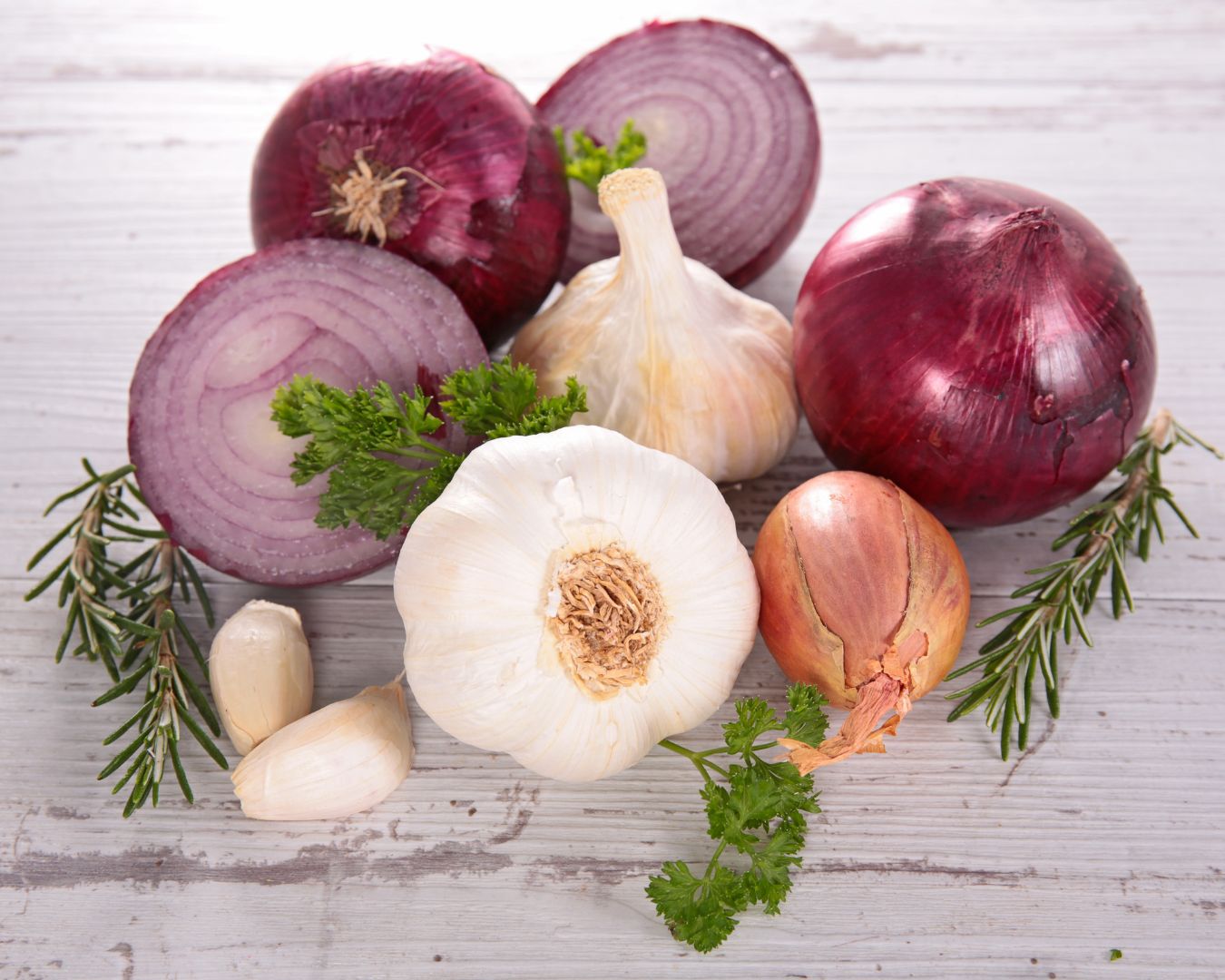Health Benefits of Garlic and Onions
Garlic and onions are staples in kitchens worldwide, not just for their robust flavors but also for their impressive health benefits. These humble ingredients have been used for centuries in traditional medicine and are now recognized by modern science for their powerful properties. Let’s dive into the health benefits of garlic and onions and why you should include them in your diet. Rich in Antioxidants Both garlic and onions are packed with antioxidants, which help protect your body from oxidative stress and reduce the risk of chronic diseases. Onions are particularly high in quercetin, a potent antioxidant that has been shown to fight inflammation and boost heart health. Garlic contains allicin, which not only gives garlic its distinct aroma but also acts as a strong antioxidant. Boost Immune Function Garlic and onions are known for their immune-boosting properties. Garlic, in particular, has been shown to enhance the body’s ability to combat illness. Studies have found that regular consumption of garlic can reduce the severity of colds and flu and even prevent them in the first place. Onions also contribute to immune health by providing essential nutrients like vitamin C, which is crucial for a strong immune system. Support Heart Health One of the most well-known benefits of garlic is its ability to support heart health. Garlic has been shown to lower blood pressure, reduce cholesterol levels, and improve overall heart function. Onions also play a role in heart health by helping to reduce bad cholesterol (LDL) levels while maintaining good cholesterol (HDL) levels. The anti-inflammatory properties of both garlic and onions further contribute to a healthy cardiovascular system. Anti-Cancer Properties Garlic and onions have been linked to a reduced risk of several types of cancer, including stomach, colorectal, and esophageal cancers. The sulfur compounds in garlic, such as allicin, and the flavonoids in onions, such as quercetin, have been studied for their ability to inhibit cancer cell growth and reduce tumor size. Regular consumption of these vegetables as part of a balanced diet may help lower your risk of cancer. Improve Digestive Health Onions, especially when eaten raw, are a good source of fiber, which aids in digestion and promotes a healthy gut. They contain prebiotics, which feed the beneficial bacteria in your gut, helping to maintain a healthy microbiome. Garlic, too, has been shown to support gut health by promoting the growth of good bacteria and reducing harmful bacteria. This can lead to better digestion and improved nutrient absorption. Anti-Inflammatory Effects Chronic inflammation is a root cause of many diseases, including heart disease, diabetes, and arthritis. Both garlic and onions have powerful anti-inflammatory properties that can help reduce inflammation in the body. The sulfur compounds in garlic and the antioxidants in onions work together to reduce the levels of inflammatory markers in the body, providing relief from symptoms of chronic inflammatory conditions. Help Manage Blood Sugar Levels Garlic and onions may also help manage blood sugar levels, making them beneficial for people with diabetes or those at risk of developing the condition. Studies have shown that garlic can increase insulin sensitivity and lower blood sugar levels. Onions contain compounds that can help regulate blood sugar levels, making them a valuable addition to a diabetes-friendly diet. Detoxification Support Garlic and onions are known for their ability to support the body’s natural detoxification processes. The sulfur compounds found in both garlic and onions help the liver produce detoxifying enzymes that assist in removing toxins from the body. Regular consumption of these vegetables can help your body eliminate harmful substances, leading to improved overall health. Incorporating garlic and onions into your diet is a simple and delicious way to take advantage of their numerous health benefits. Whether you’re looking to boost your immune system, support heart health, or improve digestion, these versatile ingredients have you covered. So, the next time you’re cooking, don’t forget to add a little extra garlic and onion to your dishes—your body will thank you!



